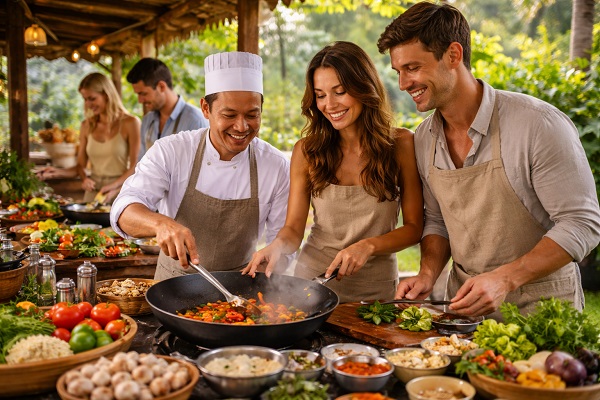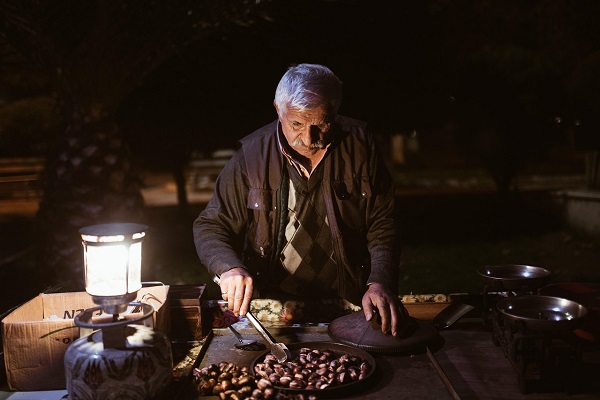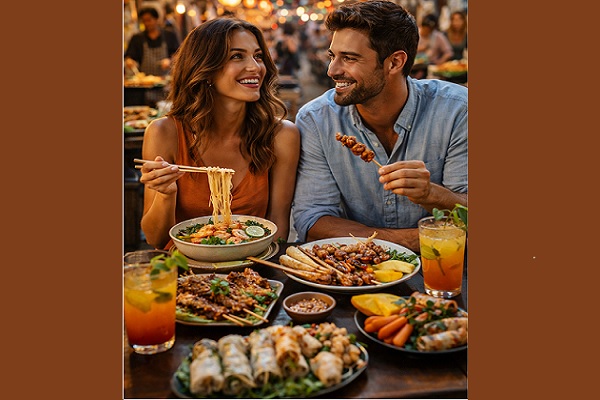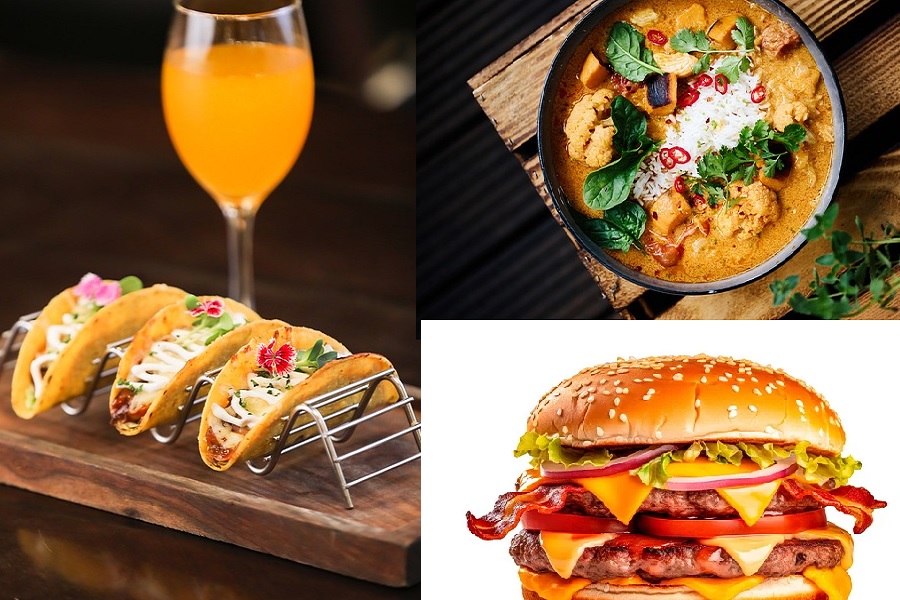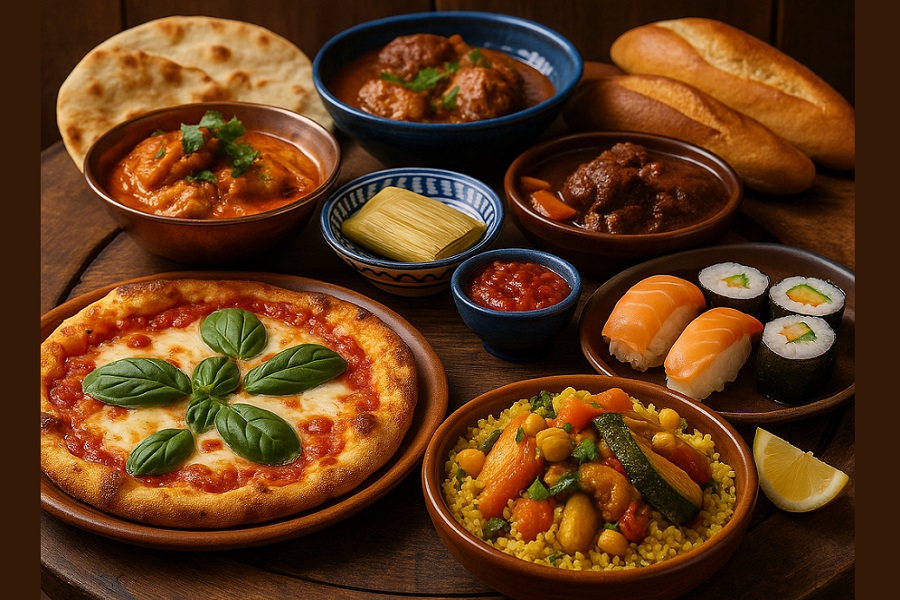Food and Beverages Travel: A Culinary Journey Around the World

Food and beverage travel is one of the most flavorful and immersive ways to explore new cultures and destinations. For many travelers, food is not just an essential part of the trip, but the centerpiece of the experience. Culinary tourism invites people to explore diverse cuisines, traditional dishes, local specialties, and the unique food stories that each destination has to offer. Whether it’s savoring a gourmet meal in a Michelin-starred restaurant, discovering street food in bustling markets, or taking part in a wine-tasting tour in a picturesque vineyard, food and beverages travel allows travelers to indulge in the true essence of a place.
What is Food and Beverages Travel?
Food and beverages travel focuses on the exploration of local cuisine and beverages as a central part of the travel experience. It goes beyond just dining out; it involves immersing oneself in the culture and traditions behind the food and drink of a region. From farm-to-table experiences to cooking classes, food tours, wine tastings, and brewery visits, food-centric travel offers an opportunity to engage with local communities, learn culinary skills, and experience authentic flavors that tell a story about the place.
Types of Food and Beverages Travel Experiences
-
Culinary Tours: Culinary tours are organized trips that focus on the discovery of a destination’s food culture. These tours often include stops at local restaurants, street food stalls, markets, and food producers, allowing participants to sample traditional dishes, learn about local ingredients, and meet the people behind the food.
-
Cooking Classes: Many travel destinations offer hands-on cooking classes where travelers can learn to make local dishes. These experiences often take place in traditional kitchens, and participants may get to shop for fresh ingredients at local markets before cooking under the guidance of local chefs.
-
Wine and Beverage Tastings: Wine lovers can embark on vineyard tours to taste local wines and learn about the wine-making process. Similarly, beer enthusiasts can visit breweries to sample local brews, while coffee lovers can explore coffee-growing regions and participate in tasting sessions. Distillery tours, focusing on spirits like whiskey, rum, and vodka, are also part of the food and beverages travel experience.
-
Food Festivals: Many destinations around the world host food festivals that celebrate local and international cuisines. From street food festivals to fine dining events, these festivals give travelers the opportunity to sample an array of dishes, enjoy food-related activities, and interact with chefs and food producers.
-
Farm-to-Table Experiences: These experiences are centered around sourcing ingredients directly from local farms and markets, giving travelers the chance to taste the freshest food possible. Many restaurants and resorts offer farm-to-table experiences, where meals are prepared using locally grown, organic ingredients.
-
Street Food Tours: Street food is often the heart of a city’s culinary identity. Street food tours guide travelers through local neighborhoods to try iconic dishes from food carts, markets, and hole-in-the-wall restaurants. These tours offer an authentic, low-cost way to sample local delicacies and explore a destination’s food scene.
Popular Food and Beverage Travel Destinations
-
Italy: Italy is a food lover’s paradise, offering everything from rich pastas and cheeses to world-renowned wines. Regions like Tuscany, Emilia-Romagna, and Sicily are famous for their culinary traditions. Whether it’s tasting wines in Chianti, making pizza in Naples, or exploring the flavors of Sicily, Italy offers diverse food experiences.
-
France: France, with its culinary heritage and fine dining culture, attracts food travelers from all over the world. Paris is known for its patisseries and bistros, while regions like Bordeaux and Burgundy offer wine tours and tastings. In Provence, travelers can explore fresh Mediterranean flavors, while Lyon is often considered the gastronomic capital of France.
-
Japan: Japan’s cuisine is known for its delicacy, precision, and fresh ingredients. Tokyo, Kyoto, and Osaka are must-visit cities for food lovers. Sushi, ramen, tempura, and kaiseki (traditional multi-course dining) are some of the must-try dishes. Japan’s sake culture also offers unique tasting experiences for travelers.
-
Thailand: Thailand is known for its vibrant street food scene, with dishes like pad Thai, som tum (papaya salad), and satay. Bangkok, Chiang Mai, and Phuket are key destinations for street food tours. In addition to food tours, cooking classes are also popular, allowing visitors to learn how to make Thai dishes.
-
Mexico: Mexican cuisine offers a rich variety of flavors, from tacos and tamales to mole and enchiladas. Mexico City, Oaxaca, and Puebla are popular destinations for food lovers. Travelers can explore local markets, enjoy tequila tastings, and participate in hands-on cooking experiences.
-
Spain: Spain is a paradise for foodies, offering a blend of Mediterranean, Moorish, and regional influences. Spanish cuisine is diverse, with tapas, paella, jamón ibérico, and churros among the must-try dishes. Barcelona, Madrid, and Seville are key destinations for food tours and wine-tasting experiences.
-
Vietnam: Known for its fresh and flavorful food, Vietnam’s cuisine is characterized by its balance of herbs, spices, and flavors. Pho (noodle soup), banh mi (sandwich), and spring rolls are just a few of the country’s highlights. Cities like Hanoi and Ho Chi Minh City offer food tours that allow travelers to sample local street food.
Benefits of Food and Beverages Travel
-
Cultural Immersion: Food is often the gateway to understanding a culture. Through food, travelers can learn about history, traditions, and local customs. Engaging with local food practices allows travelers to connect with people on a deeper level and appreciate the uniqueness of each destination.
-
Educational Experiences: Food and beverage travel provides an opportunity to learn new cooking techniques, discover new ingredients, and explore the origins of popular dishes. Many experiences, such as cooking classes and wine tastings, offer educational value that travelers can take home.
-
Support for Local Communities: By participating in food-focused travel experiences, tourists often support local farmers, producers, chefs, and artisans. This creates economic opportunities for local communities and helps preserve traditional culinary practices.
-
Satisfaction and Enjoyment: Ultimately, food and beverages travel is about enjoying good food, exploring new flavors, and having fun. The joy of tasting local delicacies, sharing meals with fellow travelers, and experiencing new culinary landscapes adds richness to any journey.
How to Plan a Food and Beverages Travel Experience
-
Research Local Specialties: Before traveling, research the local food culture and must-try dishes of the region. This will help you make the most of your culinary journey and ensure you don’t miss out on iconic dishes.
-
Book Food Tours and Classes in Advance: Popular food tours and cooking classes can fill up quickly, especially during peak tourist seasons. It’s a good idea to book these experiences in advance to secure your spot.
-
Balance Culinary Experiences with Other Activities: While food may be the focus of your trip, try to balance your culinary experiences with sightseeing, cultural activities, and outdoor adventures to create a well-rounded travel experience.
-
Be Adventurous: Don’t be afraid to try new foods, especially if they are local delicacies. Sometimes, the best food experiences come from stepping outside your comfort zone.
Conclusion
Food and beverages travel offers a flavorful way to explore the world, from street food markets to gourmet dining experiences. Whether you're discovering the spices of India, savoring pasta in Italy, or sipping wine in France, culinary tourism is a unique and engaging way to experience a destination’s culture, history, and people. For food lovers, there’s no better way to create lasting memories than by indulging in the local flavors that define each journey

















